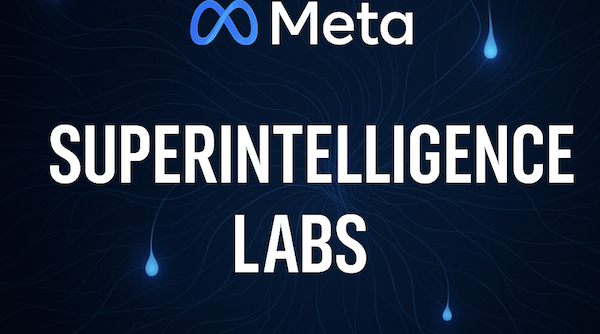Sign up for our free daily newsletter
Get the latest news and some fun stuff
in your inbox every day
Get the latest news and some fun stuff
in your inbox every day
Last week, Meta dropped quarterly results so good it had Wall Street clapping like proud parents at a school play. Shares jumped 12% to a record $779.34 after the company crushed Q2 earnings, beat every estimate in sight, and then added a cherry on top: higher sales guidance and a clear signal that it's going all-in on artificial intelligence.
Meta's hardware division (Reality Labs) is still burning cash, $4.5 billion in Q2 losses alone, but that's a known drag. The real action is in software and infrastructure.
CFO Susan Li put it plainly: now's the time to invest in AI, and Meta's doing just that. Capex is climbing fast, with early guidance already pointing to more spending in 2026. Google just upped its capex forecast to $85 billion. Microsoft plans to spend $30 billion this quarter alone, 50% more than last year. There's an arms race happening, and Meta is one of the frontrunners.
On top of that, Meta is hiring the unicorn-calibre talent to fine-tune their Llama AI models. The goal is to build human-level AI and spread it across Meta's entire ecosystem (see Paul's piece below).
The good news is that Meta has the cash to invest in further growth, thanks to its thriving ad business. Their ad machine isn't just humming, it's roaring. Revenue jumped 22% year-on-year to $47.5 billion, smashing Wall Street's expectations by the widest margin in over four years. Sales for the current quarter are forecast to come in at $47.5 to $50.5 billion (analysts were only expecting $46.2 billion). It's not just about volume; it's smarter, more expensive ads powered by AI that deliver more value to advertisers.
We like Meta because it's printing money now, reinvesting it into a future that's already arriving, and still trading at a forward P/E that doesn't make your eyes water. The stock was already up 19% this year before the results, and there's more room to run. Meta's not just chasing the future, it's monetising it.
